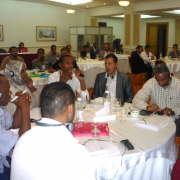
USAID Libya, in keeping with its efforts to build long-term capacity of Libyan governance and financial systems, recently partnered with World Bank to conduct a two-week intensive training on Public Financial Management (PFM) best practices for 35 technocrats from Libya’s Ministries of Finance, Planning, and Local Governance, and 11 municipalities. The training, which included two women, used international best practices and PFM practices recommended by the World Bank.
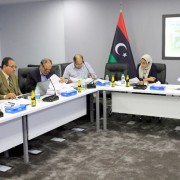
A first for Libyan women -- Alaa Alshibani -- is the head of the legal department of the country's High National Elections Commission (HNEC). Alshibani, who has been a part of the HNEC since its creation in 2012, is spearheading the commission's progress on electoral law reform.
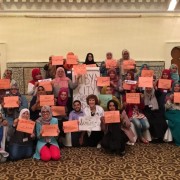
USAID/Libya partners recently convened a group of women municipal councilors from across Libya as part of their efforts to build and develop a national-level network of women leaders and to launch a Women’s Municipal Council Association. The 4-day workshop, brought together 45 female municipality council members, from west, east, and south of Libya including Tripoli districts, Zawiya, Sabha, Wazen, Sabratha, Tarhouna, Zultin, Kabaw, and Murzug. Three civil society members and four government representatives from the Ministry of Local Governance (MoLG) and Ministry of Foreign Affairs also participated in the event.
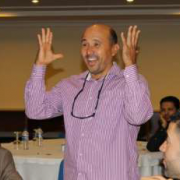
As a leader in the deaf community with a critical new set of skills, Ramadan now empowers deaf persons in Libya to exercise their right to information, to participate in the electoral process, and to play their role in rebuilding Libya.
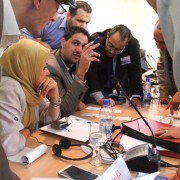
The United States Agency for International Development (USAID) supports Libya’s transition to a democratic and peaceful nation. USAID works with civil society, municipal councils, national government, entrepreneurs, and a range of civil society groups, including those representing women and marginalized communities, in their efforts to improve Libyan lives. These partnerships help improve citizen confidence in Libya’s government, both national and local, and support the ongoing democratic transition.








Comment
Make a general inquiry or suggest an improvement.